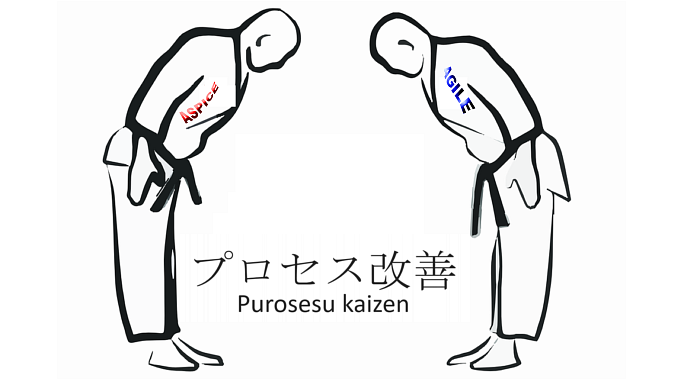
Everyone seems to disdain Automotive SPICE. Developers, managers, even some responsible quality assurers are unhappy with the pressure related to ASPICE assessments. The relief lies in recognizing the root causes of this situation.
While I am an Automotive SPICE (a.k.a. “ASPICE”) consultant, a consultancy with “process improvement” at its the core, I don’t quite take to the term itself. It appears to imply somehow that the affected project organization is flawed and needs help because you apparently don’t know how to achieve it. I perceive it as condescending. The truth is that, in most cases, you do know what needs to be done. I won’t blame you if you think that ASPICE consultants make their money off your misery. Typically, you have signed that contract clause that includes the requirement to demonstrate ASPICE compliance. You had to sign it. No ASPICE = No Business—that’s the simple formula.
Everyone hates it, so it seems. You may hate it as ASPICE is potentially a huge cost factor. When your process initiative has failed, sometimes more than once, rest assured: you are in good company. At least 80% of all process improvement initiatives fail miserably. Your project management may hate it too since it inflates the project scope. Your team almost certainly hates it since ASPICE is not “agile.” ASPICE, so is the apparent consensus, is an outdated, “command and control” nonsense. “It doesn’t work,” you keep hearing.
Only the customer seems to enjoy the negotiation leverage stemming from the ASPICE requirement: it is a bargaining chip in the customer’s war chest. And, of course, the ASPICE consultants won’t complain, either.
Root causes of the perpetual ASPICE misery
There are a few root causes perpetual to this ASPICE misery, however, and they have little to do with a lack of process quality—at least not primarily. If that were the case, ASPICE would be a walk in the park: simply describe the process, roll it out: done. That’s the theory. Yet it does not work. Why is that?
I have been in the process improvement business for nearly 20 years. It took me almost all that time to finally realize the true root causes:
- Lack of true inspiration
- Addiction to silver bullets
- Dysfunctional risk management
Reason 1: Lack of true inspiration.
It sounds somewhat esoteric, but it is a fundamental issue. If passing the ASPICE assessment is the main reason for a process improvement initiative, then it will most likely fail. The continuous struggle to improve everything must be the goal, not some abstract concept like “ASPICE” or “Agility.” The source of the willingness to continuously improve your developing organization must stem from a common business goal. Is your product cool? Can you sell your goals to your team?
Ultimately, it all boils down to your skills as a salesman. You want to “sell” your product (= your project) to the buyers (=your team and your customer). In the process of selling, a seducing inspiration is the first step.
What is your inspiration? Why is your business case “cool?” Why would anyone want to follow you through thick and thin? Do you have the edge to lead? If you can convincingly, positively answer these questions, then all other solutions will follow, including passing the ASPICE assessment.
Be inspired and inspiring.
Reason 2: Addiction to silver bullets.
Harmful euphemisms such as “agility” or “process” are dangerous. Nobody will willfully do anything just “because ASPICE tells you” so. If your ASPICE consultant uses arguments like “ASPICE wants you to…” then it should be a glowing red warning light: you are being bamboozled. Fads and silver bullets are not cool.
Do not follow fads. Instead, they should follow you, which is donethrough leading by example.
Reason 3: Dysfunctional risk management.
ASPICE is a risk management strategy. It is like an insurance policy: necessary but mostly dull. ASPICE is all about risk management. Note, however, that risk management is not just another spreadsheet. It must be an organizational mindset, and you need to take ownership of it. Identifying risks, mitigating them, and resolving them must be an activity that is deeply embedded in the team mentality and reflected by the daily activities.
Don’t fear talking about risks. Bring them on.
ASPICE Judo
Do you feel like you hate ASPICE, openly or secretly? My advice is: don’t. Don’t listen to anyone who says it is too complicated or too bureaucratic. ASPICE is, in fact, a surprisingly simple concept.
Here are some “hacks” that may help to kickstart the ASPICE improvement activities while helping resolve the mentioned root cause of ASPICE improvement initiatives failures:
- Don’t try to impose specific processes. Instead, simply go with the flow. It is what I call “organizational Judo”: use the opponent’s weight to win the fight. Does “everyone” want to be “agile?” No reason to argue. Add planning, risk management, and quality assurance elements to what the team loves. Transform the “silver bullet” into a “bullet train” that will accelerate you towards the project goals. Similarly, if everyone wants to be “process-oriented,” let them. Define a set of templates and “timebox” the work on processes. In short: whatever motivates the team, you can make “ASPICE” out of it. Be creative.
- Allow the use of “cool” tools. Developers love tinkering with tools. Let them. Make them official, define responsible “tool owners” and insist on everyone else (that is, a team member who doesn’t care about tools too much) to use those tools uniformly.
- Automate everything. Dull activities kill creativity and make your best team members quit. If your best leading experts are busy with updating spreadsheets, then they may be the most expensive spreadsheets you’ve ever seen.
- Make sure that everyone is on the same page regarding “risk management,” in a sense, as discussed above.
- Relentlessly provide genuine inspiration, as discussed. Do not hide behind “important” meetings. Always be accessible to the team members. You must be part of it, on the front line.
Do not hate ASPICE. Otherwise, it will hate you. If you feel uncertain, ask for constructive ASPICE advice. I am always happy to discuss it with you.
Let’s start a conversation on LinkedIn or X.com (formerly Twitter).
I am a project manager (Project Manager Professional, PMP), a Project Coach, a management consultant, and a book author. I have worked in the software industry since 1992 and as a manager consultant since 1998. Please visit my United Mentors home page for more details. Contact me on LinkedIn for direct feedback on my articles.






Be the first to comment